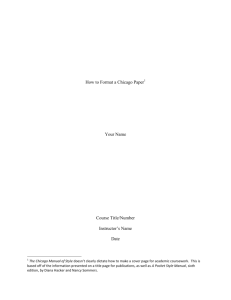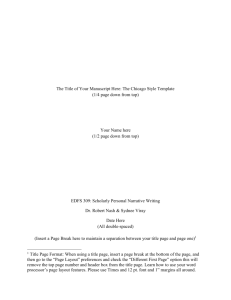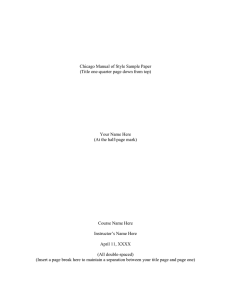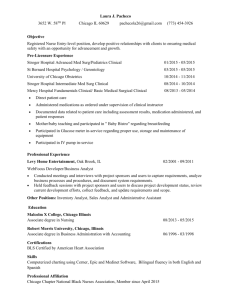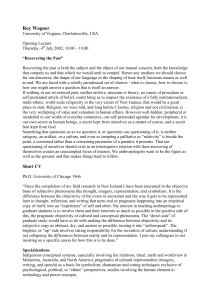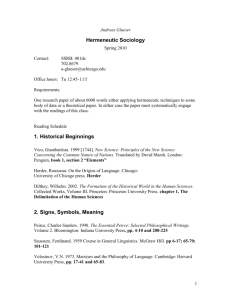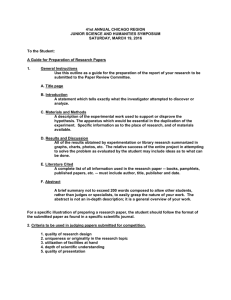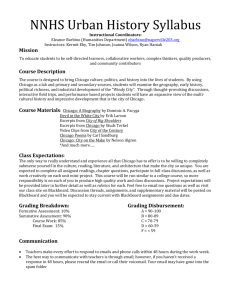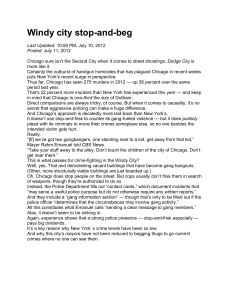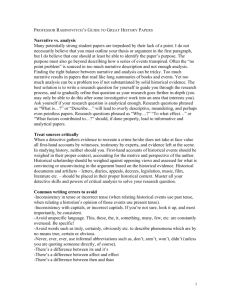HSNS Book Review Style Sheet: Formatting & Citations
advertisement
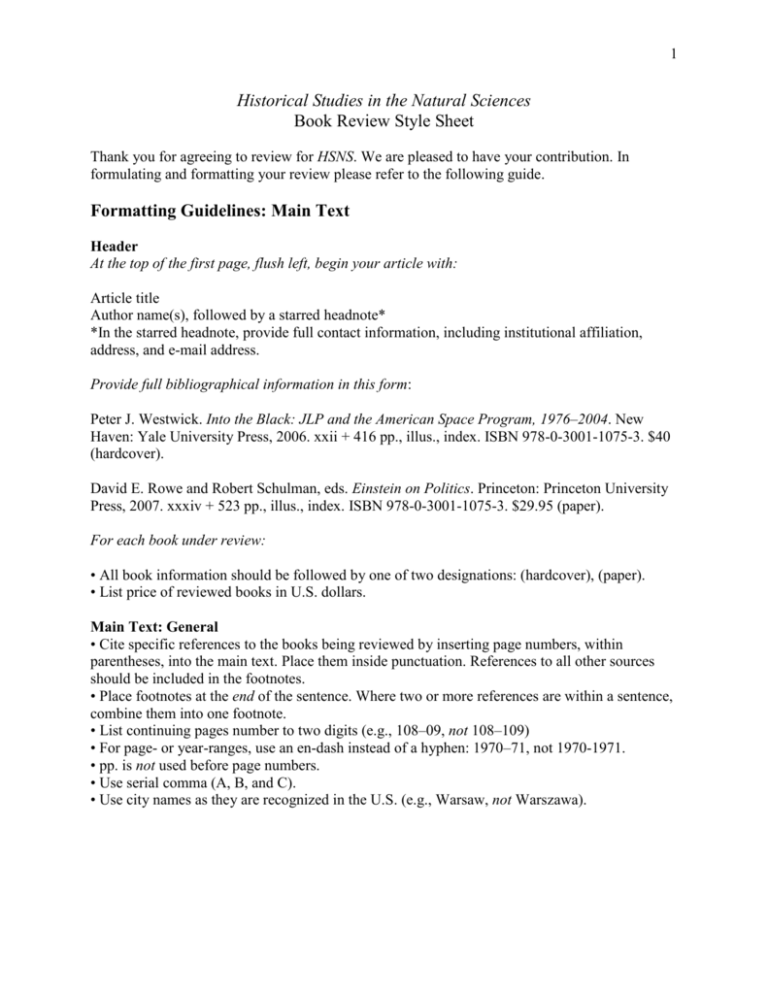
1 Historical Studies in the Natural Sciences Book Review Style Sheet Thank you for agreeing to review for HSNS. We are pleased to have your contribution. In formulating and formatting your review please refer to the following guide. Formatting Guidelines: Main Text Header At the top of the first page, flush left, begin your article with: Article title Author name(s), followed by a starred headnote* *In the starred headnote, provide full contact information, including institutional affiliation, address, and e-mail address. Provide full bibliographical information in this form: Peter J. Westwick. Into the Black: JLP and the American Space Program, 1976–2004. New Haven: Yale University Press, 2006. xxii + 416 pp., illus., index. ISBN 978-0-3001-1075-3. $40 (hardcover). David E. Rowe and Robert Schulman, eds. Einstein on Politics. Princeton: Princeton University Press, 2007. xxxiv + 523 pp., illus., index. ISBN 978-0-3001-1075-3. $29.95 (paper). For each book under review: • All book information should be followed by one of two designations: (hardcover), (paper). • List price of reviewed books in U.S. dollars. Main Text: General • Cite specific references to the books being reviewed by inserting page numbers, within parentheses, into the main text. Place them inside punctuation. References to all other sources should be included in the footnotes. • Place footnotes at the end of the sentence. Where two or more references are within a sentence, combine them into one footnote. • List continuing pages number to two digits (e.g., 108–09, not 108–109) • For page- or year-ranges, use an en-dash instead of a hyphen: 1970–71, not 1970-1971. • pp. is not used before page numbers. • Use serial comma (A, B, and C). • Use city names as they are recognized in the U.S. (e.g., Warsaw, not Warszawa). 2 Formatting Guidelines: Citations We follow the Chicago Manual of Style. See www.chicagomanualofstyle.org. Examples of the most common citation forms are given below. Authored Books [Chicago 17.16] Robert Bud, The Uses of Life: A History of Biotechnology (Cambridge: Cambridge University Press, 1993), 213. Edited Books [Chicago 16.85] Michael Thad Allen and Gabrielle Hecht, eds., Technologies of Power: Essays in Honor of Thomas Parke Hughes and Agatha Chipley Hughes (Cambridge, MA: MIT Press, 2001). Article in an Edited Volume [Chicago 17.69] Jack M. Holl, “The Peaceful Atom: Lore and Myth,” in Atoms for Peace: An Analysis after Thirty Years, ed. Joseph F. Pilat, Robert E. Pendly, and Charles R. Smith (Boulder: Westview Press, 1985), 149–59. Journal Articles [Chicago 17.154; include the full page range of the article] Catherine Westfall, “Rethinking Big Science: Modest, Mezzo, Grand Science, and the Development of the Bevalac, 1971–1993,” Isis 94, no. 1 (2003): 30–56, on 31. Online Original Content [Chicago 17.237; include access date] Ethan Watters, “DNA Is Not Destiny,” Discover Magazine, published online on 22 Nov 2006, http://discovermagazine.com/2006/nov/cover (last accessed 22 May 2009). • • • • Short Form [Chicago 17.230] HSNS uses short form in footnotes to indicate a source that has already been fully cited in a previous footnote. Shorten titles to four words or fewer. Indicate page number (unless the reference is general). General format: Author’s Last Name, Shortened Title (ref. #), page #. Bud, Uses of Life (ref. 5). Stokes et al., Pasteur’s Quadrant (ref. 9), 178. Note: Add author’s first name only in cases where there is ambiguity. About the Book Review Section HSNS reviews are typically extended discussions of one or more books. The Book Review Editors will have agreed with you on the list of works and suggested length. Please write for an audience of generally interested historians of science, who may not necessarily be specialists in the field of the books you are reviewing. You are encouraged to reflect not only on the works 3 under review, but also on larger historiographic issues they raise. References to other scholarly works are welcome. From the Foreword to HSNS 38:1 (2008) Overseen by editors Angela N. H. Creager and Michael D. Gordin, the book review section will be guided by a new principle of selection. Other journals in our field already fill the need for maximal coverage, reviewing as many worthy books as they are able. Instead we have decided to offer depth, nuance, and comparison. We will give our reviewers and readers the space to reflect on specific works of scholarship and recent trends in their fields, in, for example, historiographical review essays, exploring the state of a subfield and the variety of approaches deployed in it, and in-depth reviews of single, particularly interesting books. Further, we are intent on including more studies published in languages other than English, giving detailed discussions of methodology and approach to serve a reading community that still communicates mainly in English.


